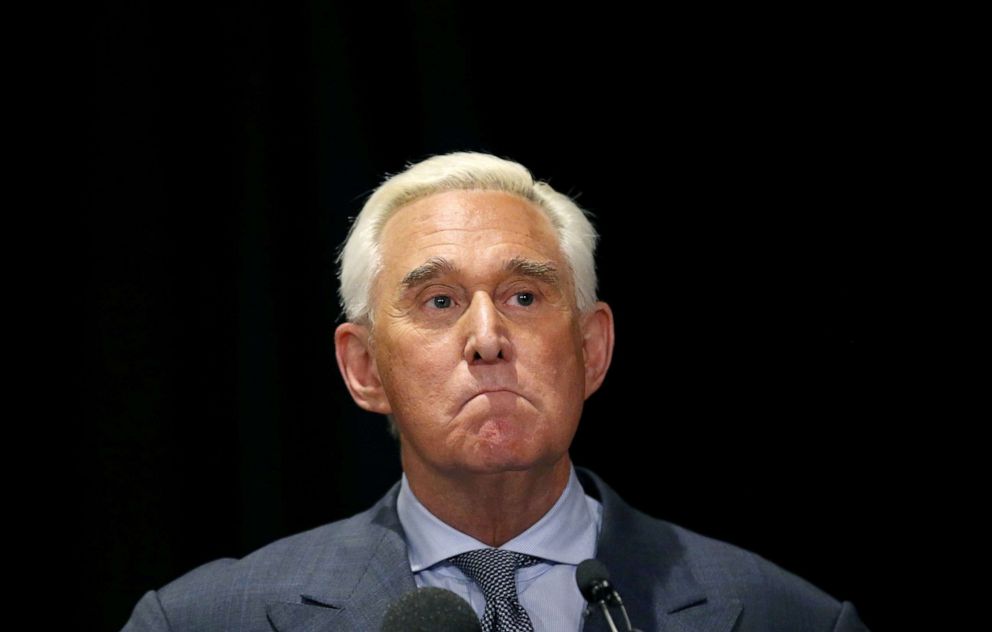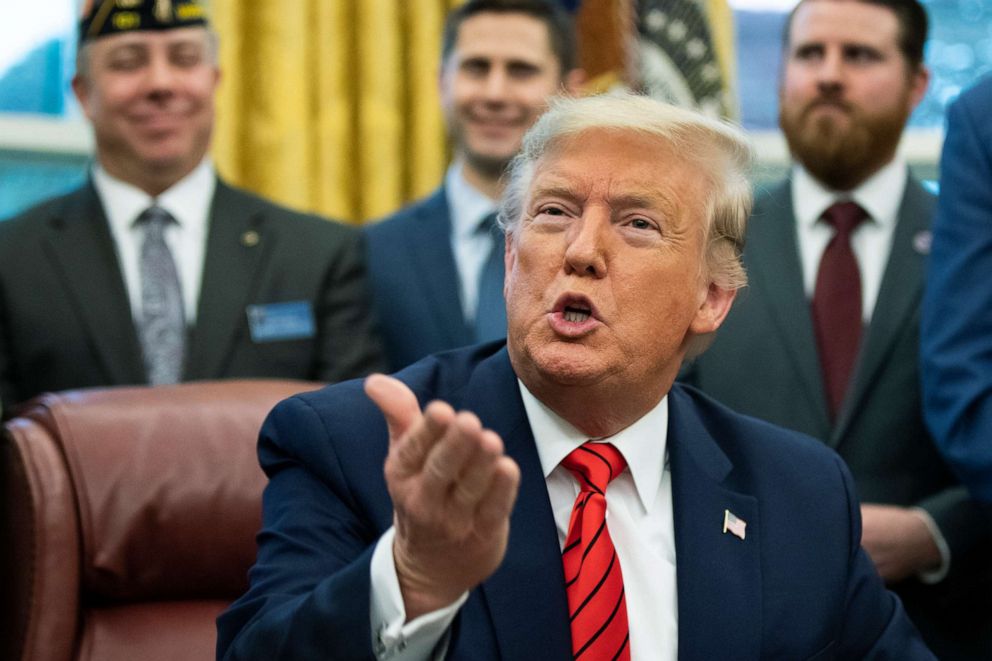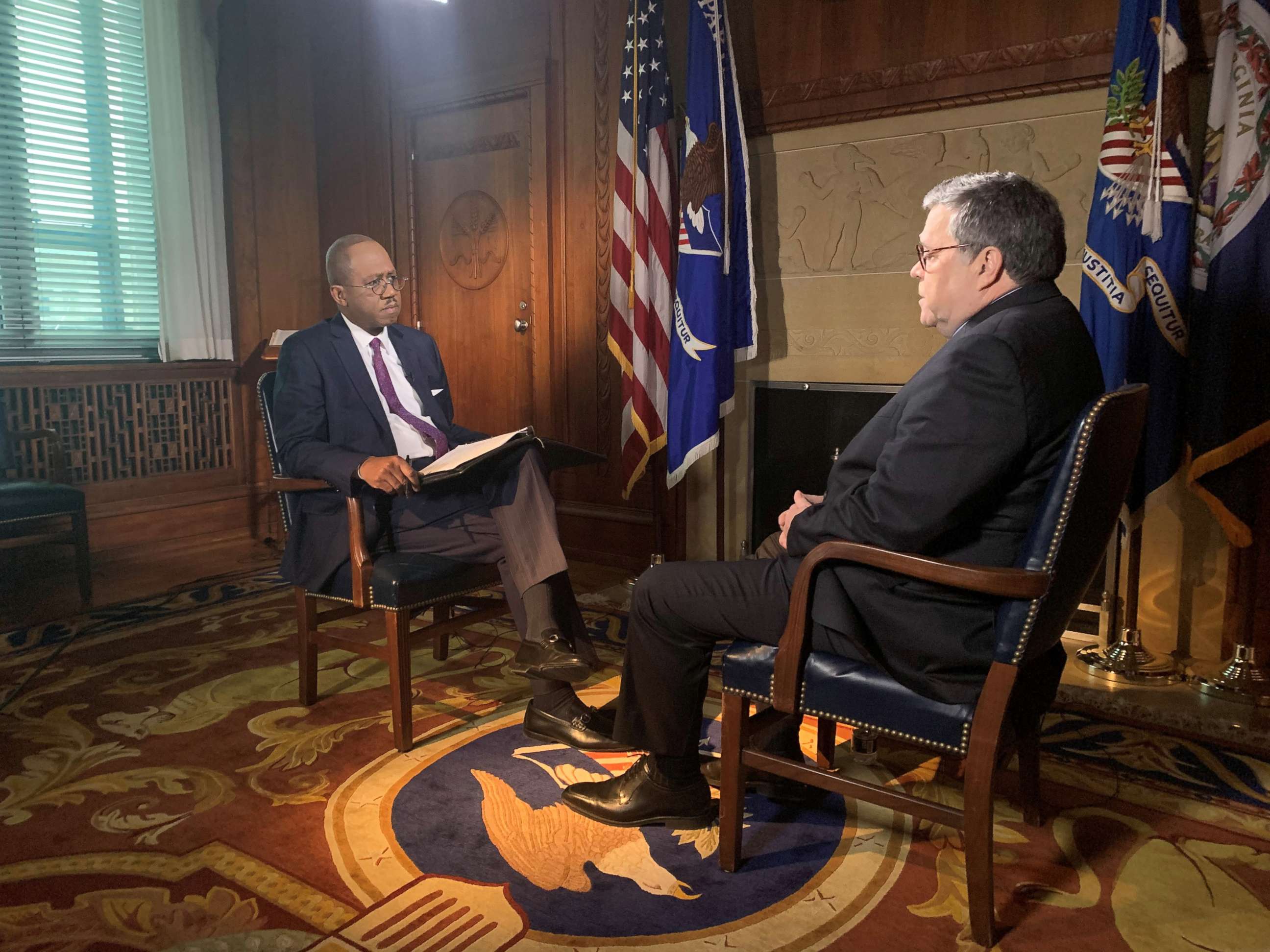A timeline of the extraordinary turn of events in the Roger Stone case
All four government prosecutors in Stone's case withdrew in protest.
In an extraordinary turn of events, all four government prosecutors involved in the case of Roger Stone, President Donald Trump's longtime friend and former campaign adviser, withdrew after the Justice Department said it would overrule their sentencing recommendation and ask the court for significantly less prison time.
One of the four, Jonathan Kravis, has resigned from the Justice Department. As of now, the three others -- Adam Jed, Aaron Zelensky, and Michael Marando -- appear to still be working at DOJ.
From prosecutors' initial sentencing recommendation Monday evening, their eventual withdrawal from the case Tuesday afternoon and the continued response on Wednesday and Thursday, here's a timeline of what has happened.
Monday 6:07 p.m. Justice Department prosecutors argue in a sentencing memo that Roger Stone's crimes warranted a sentence of seven to nine years in prison: "Roger Stone obstructed Congress's investigation into Russian interference in the 2016 election, lied under oath, and tampered with a witness. And when his crimes were revealed by the indictment in this case, he displayed contempt for this Court and the rule of law," prosecutors write.
Monday 10:57 p.m. Later that night, Stone's legal team responds in their own sentencing memo, disputing the sentencing guidelines laid out by the prosecutors. Stone's defense argues that his convicted offenses do not warrant the hig- sentencing range of seven to nine years in prison and wrote to the judge, "It is respectfully submitted that the Court should impose a non-Guidelines sentence of probation with any conditions that the Court deems reasonable under the circumstances."

Tuesday 1:48 a.m. President Donald Trump complains on Twitter about the Justice Department's sentencing recommendation: "This is a horrible and very unfair situation. The real crimes were on the other side, as nothing happens to them. Cannot allow this miscarriage of justice!"
Tuesday mid-morning A Justice Department official tells reporters that "the department was shocked to see the sentencing recommendation … this was not what had been briefed to the department and the department thinks the recommendation was extreme and excessive and grossly disproportionate to Stone's offenses and the department will clarify its position later today at the court."
Tuesday early afternoon DOJ spokesperson Kerri Kupec tells reporters that the decision by department leadership to reverse course on the recommendation for Stone's sentencing length came before the president's tweet. Kupec declines to provide further specifics on the discussions or which members of leadership were involved, but says there was no contact between the White House and Justice Department leadership regarding the Monday evening's filing prior to the decision made to reverse course.
In response to DOJ's sentencing recommendation change, Roger Stone attorney Grant Smith tells ABC News, "Our sentencing memo stated our position on the recommendation made yesterday by the government. We look forward to reviewing the government's supplemental filing."
Tuesday 2:58 p.m. Aaron Zelinsky, one of two prosecutors who served on former special counsel Robert Mueller's team, submits a filing announcing his withdrawal from the Stone case, making him the first to leave the case amid the chaos. He adds that he is resigning his position from the U.S. attorney's office in D.C. while maintaining his position as an assistant attorney in the U.S. attorney's office in Maryland.
Shortly after, Jonathan Kravis and Adam Jed follow Zelinsky in removing themselves from Stone's case. Kravis resigned from the Justice Department entirely.
Tuesday 4:45 p.m. Shortly after Jed's withdrawal, a Justice Department attorney -- new to the case -- files an amended sentencing memorandum arguing that the previous recommendation of seven to nine years "would not be appropriate" and instead "defers to the court as to what specific sentence is appropriate."
Tuesday late afternoon In the Oval Office late afternoon, Trump denies any involvement in the Justice Department's decision to revise the sentencing request for Stone, even as he asserted he would have been within his rights to do so.
"No, I didn't speak to the Justice -- I would be able to do it if I wanted, I have the right to do it to, but I stay out of things to a degree that people wouldn't believe, but I did not speak to them," he said.
Calling the initial recommendation "ridiculous" and a "disgrace," the president went on to attack the prosecutors directly, saying "these are the same Mueller people who put everybody through hell." However, the U.S. attorney who ultimately signed off on the original sentencing recommendation is a close ally of Attorney General Bill Barr.

Tuesday at 5:32 p.m. With withdrawal from Michael Marando, the last prosecutor in Stone's case, all four Justice Department prosecutors responsible for the initial recommendation filed Monday have withdrawn from the Stone case.
Tuesday evening A senior DOJ official tells reporters that they find the withdrawals of the prosecutors "surprising," but said the filing yesterday was "inconsistent with what we were told' the government would be recommending for Stone. The official said "it does" appear the withdrawals of the prosecutors, including at least one who resigned from DOJ, was done in protest of the department's reversal -- but the official declined to speak to the specifics of their circumstances.
Asked by ABC News what they will tell the judge when she asks whether Trump's tweet -- or Stone's status as one of Trump's former confidants -- played any role, the official said it was "an inconvenient coincidence" that the president tweeted that but insisted the president played no role in their decision.
Wednesday morning Senate Minority Leader Chuck Schumer calls on GOP Senate Judiciary Chairman Lindsey Graham to to convene an emergency hearing to conduct oversight and hold hearings into the DOJ reversal on Stone's sentencing.
"Senate Republicans voted to excuse President Trump's abuses of power. They voted to abdicate the constitutional authority of Congress to check an overreaching executive. Senate Republicans now own this crisis, and they are responsible for every new abuse of power President Trump commits," Schumer said.
Graham had told reporters that he thought the initial sentencing recommendation was too harsh and seemed to agree with the DOJ reversal. He also told reporters that he didn't plan on calling Barr before the Senate to discuss this particular matter. Instead, he said the committee would wait to hear from Barr later this year when it hold it's annual DOJ oversight hearing.
Wednesday afternoon The president insists that his tweet Tuesday morning condemning the Roger Stone sentencing recommendation was not political interference and continued to attack the four prosecutors who were involved in the initial sentencing recommendations.
"Nine years recommended by four people, perhaps they were Mueller people, I don't know, prosecutors. They hit the road pretty quickly," the president said in reference to the four prosecutors who resigned case in protest following the DOJ's revision of their initial recommendation.
Graham, however, has publicly disagreed with Trump on the matter.
"I don't think the president should have tweeted about on ongoing case," Graham said Wednesday.
The president also congratulated Barr in another tweet for "taking charge of the case." Barr, it was announced on Wednesday, has agreed to testify next month before the House Judiciary Committee.
Thursday morning House Speaker Nancy Pelosi asserts that the reversal represents another "abuse of power" by Trump that must be investigated by Congress.
"This is an abuse of power that the president is again trying to manipulate federal law enforcement to serve his political interest," Pelosi, D-Calif., said. "And the president is what he is. He thinks he's above the law, he has no respect for the law, but where are the Republicans to speak out on this blatant violation of the rule of law?"
Pelosi said the attorney general has "deeply damaged" the Department of Justice, though she commended four prosecutors who withdrew from the case following the attorney general's decision.
"This all must be investigated," Pelosi said. "What a sad disappointment to our country. The American people deserve better."

Thursday afternoon In an exclusive interview, Attorney General Bill Barr told ABC News that Trump "has never asked me to do anything in a criminal case," but should stop tweeting about certain Justice Department cases.
"I think it’s time to stop the tweeting about Department of Justice criminal cases," Barr told ABC News Chief Justice Correspondent Pierre Thomas, adding that the tweets "make it impossible for me to do my job."
Stone, that afternoon, brought to his defense team New York attorney Seth Ginsberg, a veteran criminal defense attorney with an extensive background in criminal defense work. Ginsberg's past roster of clients included John Gotti Jr. and other high-profile figures allegedly involved in organized crime.
Thursday evening Chief Judge Beryl A. Howell, of the D.C. District Court, issued a rare statement about how the court makes sentencing decisions.
"The Judges of this Court base their sentencing decisions on careful consideration of the actual record in the case before them; the applicable sentencing guidelines and statutory factors; the submissions of the parties, the Probation Office and victims; and their own judgment and experience," he said in a statement. "Public criticism or pressure is not a factor."
ABC News' Alexander Mallin, Ali Dukakis, Jordyn Phelps and John Parkinson contributed to this report.






